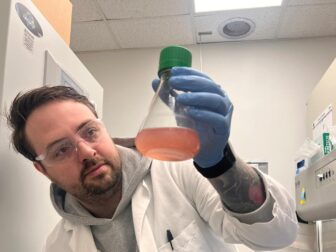Alan Ardito

Identifying Therapeutic Targets for Cerebral Malaria
Summary
Plasmodium falciparum malaria claimed over 600,000 lives in 2023, with over 90% of deaths occurring in children under the age of five in sub-Saharan Africa. While many patients experience mild symptoms, severe disease can manifest when parasite-infected red blood cells cluster in major organs. Cerebral malaria, the deadliest form of malaria, occurs when parasite-infected red blood cells sequester within the brain, causing serious harm to the circulatory system that nourishes the brain. Even with treatment, 15-30% of cases are fatal. Surviving patients often experience long-term neurological defects, like speech disorders, learning disabilities, and blindness. Using lab-created models of the brain’s blood vessel system, my research aims to understand the parasite’s machinery responsible for damaging the cerebral vascular system. Identifying these mechanisms will highlight new therapeutic targets to prevent the worst outcomes of cerebral malaria.
Watch a Q&A with Alan
Winning the PhRMA Foundation fellowship highlights the importance of tackling global challenges. This award supports my efforts to uncover the mechanisms of cerebral malaria, empowering our shared goal of transforming discoveries into meaningful therapies.

